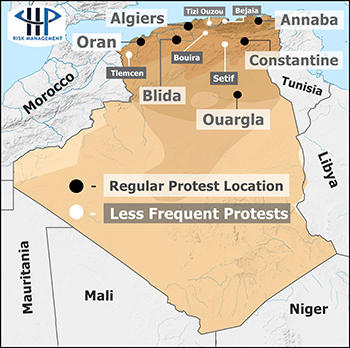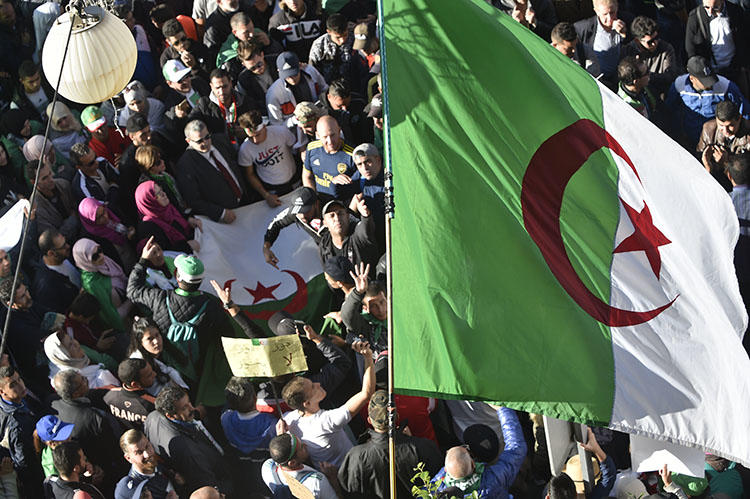Protests are taking place across Algeria ahead of a presidential election that is scheduled to take place on December 12, according to reports. The December vote comes after the resignation of President Abdelaziz Bouteflika, who stepped down from power after 20 years of rule amid widespread protests at the start of the year, according to reports.
To date, protests have predominantly taken place on Tuesdays and Fridays, though more frequent demonstrations took place in November, Reuters reported.
Since February, CPJ has documented how Algerian authorities have censored reporting, expelled foreign journalists covering the protests, blocked websites, and suspended journalists over their coverage of the unrest.
Obtaining visas or permits, including journalist visas and media accreditation, for Algeria, can be difficult, local journalists said.
Security forces have used pepper spray, tear gas, water cannon, batons, and sound cannon to try to dispel protesters, according to local media and Reuters. The protests have also disrupted transport including the railway system and the Algiers metro, and led to police roadblocks in and around cities, according to reports. The BBC reported that plain-clothed police approached journalists earlier this year while they were interviewing protesters.
HP Risk Management, a security firm that provides specialized safety information to CPJ, has identified common protest locations and potential flash points that journalists should be aware of. These include:

- Algiers: Place de la Grande Poste, Place du 1er Mai, Place Maurice Audin, Rue Didouche Mourad, and the University of Algiers campus
- Oran: Place de l’Armes and the University of Oran campus
- Constantine: University of Constantine campus
- Ouargla: Place de la Rose des Sables and the provincial capital building
- Blida: University of Blida campus
- Annaba: Areas close to the Azzedine Medjouni theatre and Les Cours de la Révolution.
Journalists covering the elections and unrest should consider the following:
Before you travel:
- Be aware that free movement for international travelers can be limited and may involve a police escort in areas outside major urban centers
- Review what information is stored on your devices, including phones and computers. Anything that could put you at risk or that contains sensitive information should be backed up and deleted. There are ways to recover deleted information, so anything that is very sensitive should be permanently erased using a specific computer program, rather than just deleted
- If planning to cover protests, consider the necessity of Personal Protective Equipment (PPE) such as a tear gas mask, ballistic goggles, and ear defenders. Be sure to check the legality of such equipment in Algeria before you travel
- The use of binoculars is illegal in Algeria and authorities can be suspicious of those using GPS navigational device
- Be aware of the risks from border crossings into Algeria via Mali, Niger or Libya, where there is an increased threat from militant groups
On the ground:
- Plan ahead and prepare for potential travel delays caused by police roadblocks or the suspension of railway and metro services. Allow extra time for all journeys and take a street map with you
- Be vigilant about who you speak with and what you say, and pay attention to who else is close by. Plain-clothed security officials may be among protesters
- Exercise caution when exchanging money. It is a common practice to convert currency via informal money exchangers. However, this is illegal and foreign travelers have fallen foul of the law when using this system
- Before traveling outside of urban centers, check on the latest security situation with trusted local sources or other journalists who recently traveled to the region. This is especially important if you plan to travel close to the border regions with Mali, Niger, or Libya
- Always use discretion when filming, especially at sensitive sites or near the military, police, or state infrastructure
CPJ’s online Safety Kit provides journalists and newsrooms with basic safety information on physical, digital, and psychological safety resources and tools, including on covering civil unrest and elections.
